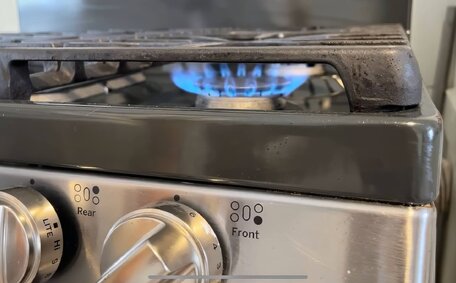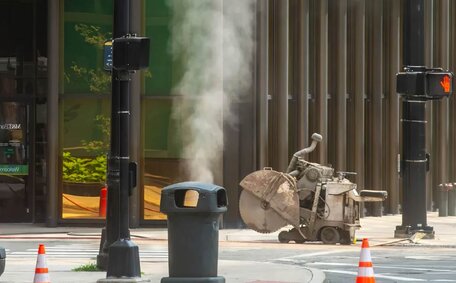Introduction: The Dangers of Incorrect Drain Disposal
Improperly putting waste down your drain can lead to severe plumbing issues in your home and environmental damage. Specific objects put down your sink can go awry, creating blockages and inflicting damage upon your kitchen drain and broader infrastructure, or polluting waterways with severe ecological consequences if carelessly discarded. Understanding which items should and should not enter your drain is crucial for protecting both your property and the environment.
It’s vital to recognize that non-flushable solids such as food scraps, grease, and chemicals can adhere to pipe walls, constraining water flow. Items mistakenly considered harmless can breed bacteria and corrode your plumbing systems, resulting in costly repairs. Materials that end up in drains may escape sewage treatment, undermining efforts to keep our waterways free from pollution.
Common misconceptions about 'flushable’ wet wipes can lead to extensive plumbing damage; unlike toilet paper, these wipes do not disintegrate and can accumulate, obstructing water flow, and result in blocked drains. Even products labeled as 'flushable wipes’ do not disintegrate like toilet paper and should not be flushed. Sanitary products should not be flushed down toilet as they can also get stuck in pipes, just like paper towels, cigarette ends, cotton buds, and similar refuse, potentially creating a blocked drain and causing aggravating and expensive blockages.
Understanding what not to discard in your drains and following garbage disposal unit guidelines can help households avoid plumbing emergencies and reduce environmental impact. Simple adjustments about what goes down the drain can protect your plumbing and help maintain clear waterways.
Household Fats and Oils: Clogging Compounds
Fats, oils, and grease, while seemingly harmless, can clog drains and lead to significant blockages if poured down the drain. As oils grease and other thick liquids — the most common culprits — pour down sink, within the pipes they cling to interior walls and clog your pipes. Food scraps, particularly pasta and rice, can put pressure on grease, forming robust fatbergs that could clog the drains if put down your kitchen sink.
In 2017, a 250-meter fatberg weighing 130 tonnes found in London’s sewers highlighted the severe consequences of neglecting waste management. These horrendous cases demonstrate how materials that end up going down kitchen drains can restrict wastewater flow which can lead to sewage backing up into streets and homes. In the US, approximately 23,000-75,000 sewer overflows occur annually due to the improper disposal of fats oils, grease, and wipes.
To prevent fatbergs, responsibly dispose of fats and oils in the rubbish bin rather than down the kitchen sink or toilet. As items you should never put down any drain system, make a decision to throw them away directly into the bin, just as you wouldn’t discard them in your shower. Alternatively, oils can be recycled into sustainable biofuel instead of clogging city infrastructure.
Instead of pouring them down the drain, allow bacon grease and cooking oil to solidify, wrap them in a paper towel and throw them in the bin.
Illegally disposing of grease and other items that should never enter drains risks damaging your plumbing system, property, health, and the environment. Contact Rockdale Plumbing on 1300 349 338 to learn more about correct oil and fat disposal methods.
Coffee Grounds and Food Waste: Drain-Damaging Debris
Despite their benign appearance, coffee grounds contribute to severe plumbing issues when washed down the drain. Coffee grounds don’t dissolve, accumulating along with other debris inside pipes, unlike hot water which aids in maintaining flow. Over time, with materials that you shouldn’t let go down your drains, a dense mass can build up, narrowing pipes and restricting water flow.
Discarding the wrong substances into your kitchen drain can heighten the risk of clogs and serious plumbing problems. Within the pipes they can inhabit, these organic materials rot and produce foul sulphide gases and caustic acids, promoting corrosion. Even minor quantities of improper waste can gradually degrade infrastructure.
Instead of washing grounds down pipes drains, let them cool before ensuring you never put them down the drain, opting instead for the bin or compost. Food waste like egg shells, cores, peels, and scraps should make their way straight into your compost bin or organic waste containers. Composting coffee grounds or using baking soda can actually benefit your garden by balancing pH levels.
Letting inappropriate materials like coffee grounds, organic waste, fats, or oils enter drains breaches plumbing regulations and endangers the environment. Protect assets and ecosystems by learning to properly dispose of these substances in designated receptacles.
Fibrous Foods and Produce Stickers: Troublesome Materials
Cat litter, along with fibrous fruits and vegetables, can wreak havoc on drainage systems if not disposed of properly. These stringy foods can cause damage as they fail to break down during their journey going down pipes, getting tangled in infrastructure.
An accumulation of debris can lead to condensed clogs that constrict pipes and impede wastewater flow. Rotting produce also releases corrosive gases and acids that erode pipes from the inside over time. Persistent flushing of improper materials can result in leaks, flooding, and costly repairs.
Items like produce stickers, though seemingly harmless, can build up and obstruct water treatment equipment. Produce stickers can swell and transform into a sticky paste that clings to and hampers machinery. Workers must then halt operations and manually extract debris, costing significant time and money.
To avoid contributing to blockages, compost overripe fruits/vegetables or place their remains in the bin. Make it a habit to dispose of them directly into the rubbish bin instead of carelessly washing them down the sink. With some added awareness on what go into the pipes, they can prevent harm to plumbing and wastewater systems.
Chemicals and Medications: Invisible Threats
Many households unwittingly pour harmful chemicals and pharmaceuticals down bathroom sinks and kitchen sink units. While invisible to the naked eye, these contaminants damage infrastructure and the environment.
Substances such as leftover paint, motor oil, and pesticides can cause severe damage to your plumbing; thus, avoid disposing of them down the drain. It’s a good idea to consider that medications often pass through filtration systems, entering into our local waterways. Drug residue has been discovered in our water supply, indicating improper disposal.
Chemicals that are flushed down drains can leach into and corrode pipes and sewer lines, leading to expensive repair work. Contaminated wastewater also poisons aquatic life, whilst chemicals that reach drinking supplies endanger public health.
Instead of pouring chemicals or old medications down drains, contact your local council regarding proper disposal methods. Most offer free toxic and hazardous waste recycling. You can also use community take-back programmes to safely dispose of medications.
Putting hazardous liquids or pills down sinks endangers infrastructure, wildlife, and human health. Make the environmentally-conscious decision and dispose of these substances responsibly.
Proper Disposal Methods: Toward Responsible Waste Practices
Incorrect disposal of pet waste and household rubbish can compromise the integrity of the sewage system. To encourage responsible practises, here are guidelines for correctly getting rid of common items:
- Fats, Oils, and Grease - Allow to fully cool and solidify before placing in a sealed container and putting in your own rubbish bin. Alternatively, recycle your garbage such as oils into eco-friendly biofuel.
- Food Scraps - Discard them away from your drains into organics bins for council collection or compost them at home (except for meat/dairy).
- Coffee Grounds - Dry thoroughly and add to your compost bin or council organics collection.
- Produce Fibres/Stickers - Dispose of fibrous fruit and vegetable leftovers in your compost bin, or if your kitchen drain has a proper disposal unit, use that instead. Peel off and bin produce stickers.
- Chemicals - Check Rockdale City Council guidelines for proper disposal methods. Many run free recycling days for hazardous household chemicals.
- Medications - Return expired or leftover pharmaceuticals to your local chemist for safe disposal.
By following these practices for proper waste disposal, households can safeguard against plumbing emergencies, infrastructure damage, and environmental harm. Unsure how to correctly dispose of certain substances? Contact our team at Rockdale Plumbing on 1300 349 338 for professional advice tailored to your needs.
Conclusion: Embracing Sustainable Drain Use
Improperly discarded waste in drains endangers plumbing infrastructure, leads to waterway contamination, and accelerates landfill overflow. However, many continue harmful practices due to a lack of awareness about the implications.
By identifying primary culprits such as fats, chemicals, produce fibres, and pharmaceutical residues, this guide informs households on making responsible disposal choices. We all play a role in either worsening or resolving this critical issue.
Conscientious drain use helps individuals protect their property and health, while also shielding local ecosystems from further pollution. Small daily choices snowball into tremendous positive change when multiplied across communities.
As plumbing specialists in the Rockdale area, we encourage residents to manage household waste as described above. Seek further advice from our team if ever unsure about appropriate disposal methods.
Together, by practicing increased mindfulness, we can change our habits to uphold functional drainage systems and healthy aquatic ecosystems.






